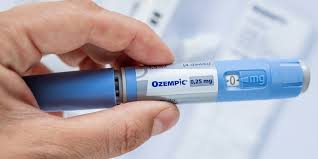What to Expect After Taking an Ozempic Injection
Starting Ozempic injection can be a significant step in managing type 2 diabetes or pursuing weight loss goals. Whether you’re newly prescribed or considering this treatment, understanding what happens after the injection helps you prepare physically and mentally. In this guide, we’ll walk through the effects, timeline, side effects, and results you can expect after taking Ozempic.
Understanding Ozempic Injection
Ozempic is a once-weekly injection containing semaglutide, a GLP-1 receptor agonist. It mimics a natural hormone that:
Stimulates insulin secretion
Reduces glucagon production
Slows gastric emptying
Decreases appetite
As a result, it helps control blood sugar and supports gradual, steady weight loss.
Timeline: What Happens After an Ozempic Injection
Here’s a general breakdown of how your body may respond in the hours, days, and weeks after a dose:
⏱ Within Hours
Ozempic begins to slow digestion and affect hunger signals.
You may feel full sooner than usual or have less desire to snack.
Some individuals report mild nausea early on, especially during the first few doses.
⏱ 1–3 Days After Injection
Blood sugar levels start to stabilize.
Gastrointestinal symptoms like bloating, nausea, or constipation might occur.
Appetite reduction becomes noticeable.
⏱ End of Week 1
Most users experience milder hunger and improved portion control.
Some report slight weight fluctuations and better energy balance.
Short-Term Effects You Might Experience
During the first few weeks of treatment, your body adjusts to semaglutide. You might notice:
✅ Positive Changes
Reduced cravings
Lower blood sugar readings (if diabetic)
A sense of fullness with smaller meals
Better control over snacking habits
⚠️ Possible Side Effects
Nausea or queasiness
Diarrhea or constipation
Headaches
Fatigue or low energy, especially after meals
These side effects are usually temporary and often resolve within the first 4–6 weeks of consistent use.
Long-Term Results After Continued Use
Once your body adjusts to Ozempic, the benefits tend to become more pronounced:
🔹 Weight Loss
Users typically report slow and steady weight loss over several months. Clinical data suggests an average of 5%–10% body weight loss with long-term use.
🔹 Blood Sugar Control
People with type 2 diabetes may see improvements in:
Fasting blood glucose levels
Post-meal blood sugar spikes
HbA1c levels over time
🔹 Appetite Management
One of the standout effects of Ozempic is long-term appetite suppression, helping users maintain healthier eating habits.
When Will You Start to See Results?
📌 Weight Loss Timeline
Week 1–4: Minimal changes in weight; body is adjusting
Week 4–8: Appetite drops; first signs of weight reduction
Week 8+: More noticeable fat loss, especially if combined with diet/exercise
📌 Diabetes Management
Some individuals see better fasting glucose results within 1–2 weeks
HbA1c improvements usually occur after 3 months of consistent use
How to Handle Side Effects
To ease the transition and minimize discomfort, consider the following:
💡 Tips for Managing Side Effects
Eat smaller, more frequent meals
Avoid greasy, spicy, or heavy foods
Stay hydrated throughout the day
Limit caffeine and alcohol
Get regular light physical activity to support digestion
If side effects persist or worsen, it’s essential to consult with your healthcare provider for dosage adjustment or alternatives.
Lifestyle Changes That Enhance Results
While Ozempic helps with appetite and glucose control, pairing it with healthy habits maximizes its benefits:
✅ Recommended Habits
Follow a balanced, low-carb or Mediterranean-style diet
Engage in at least 150 minutes of moderate exercise per week
Get adequate sleep (7–9 hours per night)
Monitor your weight and blood sugar weekly
Mental and Emotional Changes to Expect
Ozempic can also lead to psychological shifts such as:
Improved confidence due to weight loss
Reduced food obsession or emotional eating
Greater motivation to maintain a healthy lifestyle
Is Everyone’s Experience the Same?
Not at all. Every body reacts differently. Factors that affect your results and response include:
Age and metabolism
Starting weight and diet
Activity level
Insulin sensitivity or resistance
Other medical conditions
Some people experience dramatic results early on, while others may need several months before seeing major changes.
When to Call Your Doctor
If you experience any of the following after taking Ozempic, contact your healthcare provider:
Severe abdominal pain
Persistent vomiting
Signs of dehydration
Allergic reactions (rash, swelling, difficulty breathing)
Unusual fatigue or confusion
Conclusion
Ozempic injection can be a transformative treatment when used correctly. While side effects may occur in the beginning, many users report life-changing benefits like better glucose control and noticeable weight loss after continued use. Understanding what to expect helps you stay prepared, committed, and optimistic on your health journey.
If you stay consistent and support the medication with a healthy lifestyle, Ozempic can become a powerful ally in achieving your wellness goals.
